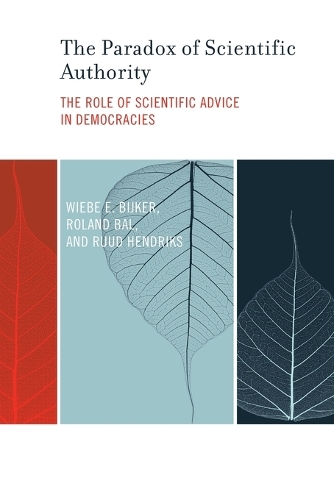
The Paradox of Scientific Authority: The Role of Scientific Advice in Democracies
(Paperback)
Publishing Details
The Paradox of Scientific Authority: The Role of Scientific Advice in Democracies
By (Author) Wiebe E. Bijker
By (author) Roland Bal
By (author) Ruud Hendriks
MIT Press Ltd
MIT Press
7th July 2017
United States
Classifications
General
Non Fiction
338.949206
Physical Properties
Paperback
238
Width 152mm, Height 229mm
369g
Description
Assessing the influence of scientific advice in societies that increasingly question scientific authority and expertise.Today, scientific advice is asked for (and given) on questions ranging from stem-cell research to genetically modified food. And yet it often seems that the more urgently scientific advice is solicited, the more vigorously scientific authority is questioned by policy makers, stakeholders, and citizens. This book examines a paradox- how scientific advice can be influential in society even when the status of science and scientists seems to be at a low ebb. The authors do this by means of an ethnographic study of the creation of scientific authority at one of the key sites for the interaction of science, policy, and society- the scientific advisory committee. The Paradox of Scientific Authority offers a detailed analysis of the inner workings of the influential Health Council of the Netherlands (the equivalent of the National Academy of Science in the United States), examining its societal role as well as its internal functioning, and using the findings to build a theory of scientific advising. The question of scientific authority has political as well as scholarly relevance. Democratic political institutions, largely developed in the nineteenth century, lack the institutional means to address the twenty-first century's pervasively scientific and technological culture; and science and technology studies (STS) grapples with the central question of how to understand the authority of science while recognizing its socially constructed nature.
Author Bio
Wiebe E. Bijker is Professor at Maastricht University and the author of Of Bicycles, Bakelites, and Bulbs: Toward a Theory of Sociotechnical Change (MIT Press) and other books.
Roland Bal is Professor in and Founding Chair of the Department of Healthcare Governance of the Institute of Health Policy and Management, Rotterdam.
Ruud Hendriks is Assistant Professor of Philosophy at the University of Maastricht.
